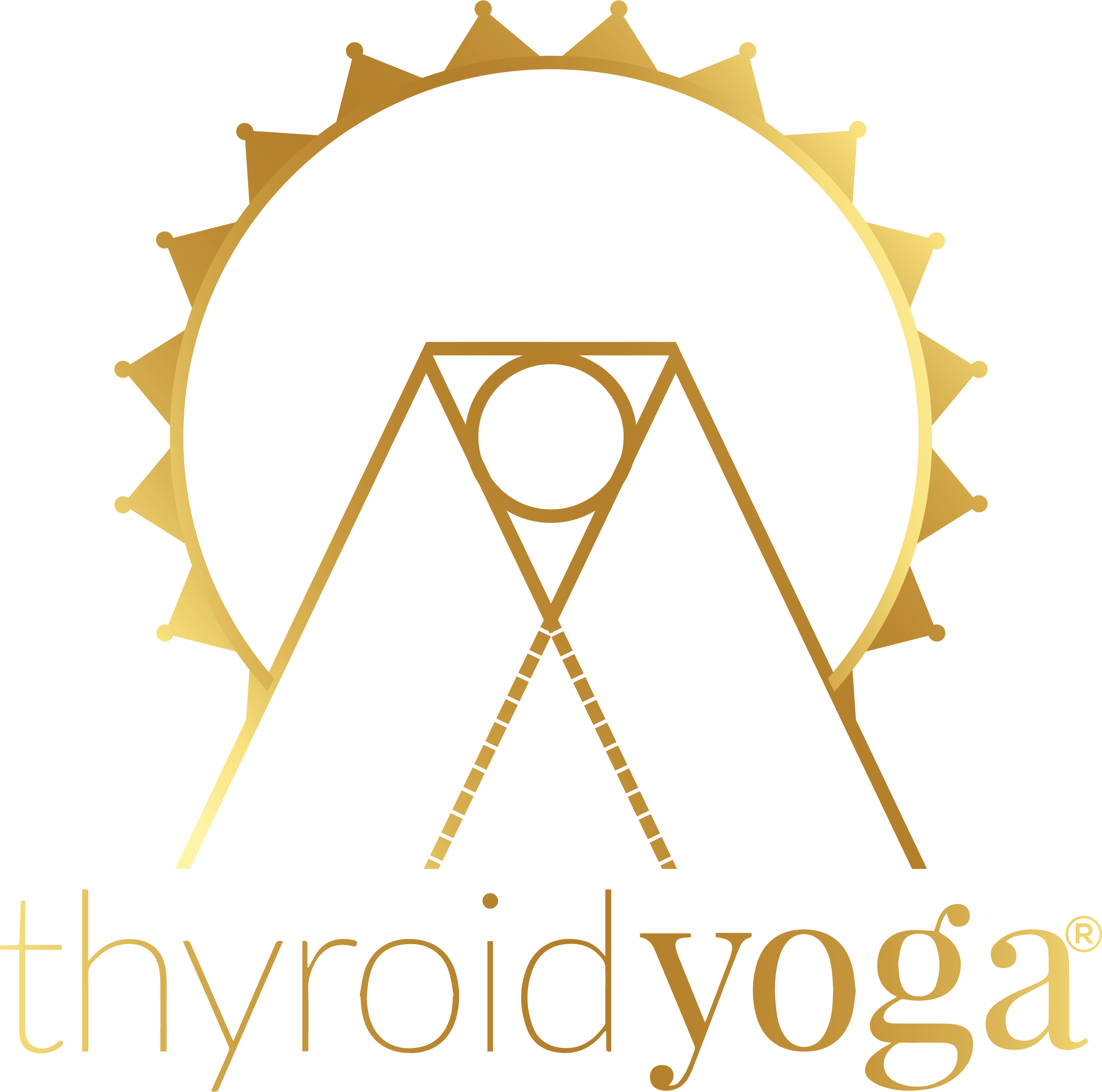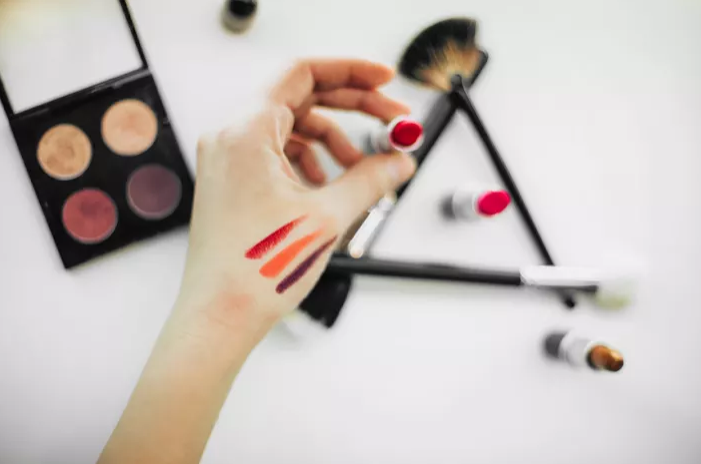5 Things A Thyroid Expert Never Has In Her Home
The following household items have proved detrimental to my hormones, veering me off my journey to step up and thrive with full feminine force. I've tossed them by the wayside and advised my clients to consider ditching them too:
1. Warm bisphenol A:
Although first synthesized as a synthetic estrogen, bisphenol A (also more commonly known as BPA) was quickly adopted by the chemical industry as a plastic replacement. Go figure then that a) it tinkers with our hormones in a disastrous fashion, and b) it’s everywhere. We live in a plastic society that’s enthralled by the material's durability and low price point, so plastic is hard—sometimes impossible—to avoid. That's why I give my clients an easier rule to follow: Avoid warm plastic at all costs! Don’t touch any plastic that has been heated, or become warm under sun exposure, with a barge pole.
The bonds that lock BPA together in plastic break easily, especially when presented with heat or things such as acidic or high-fat foods. It’s a "leaky" chemical and one that we most definitely do not want in intimate contact with our food. BPA seems to have a complex and potentially insidious effect on the endocrine system, and the fact that it is a synthetically produced estrogen (the female sex hormone) speaks volumes to its ability to confuse the body and its intricate balance of hormonal equilibrium.
Try this instead: If you're using plastic, look for a "BPA FREE" label. BPA is in a huge array of products, most alarmingly in items such as baby bottles (which are intended to be heated!) Tupperware, plastic bottles, cellphones, DVDs, spectacle lenses, and the lining of tin cans. Never put hot food into plastic containers or use plastic kitchen utensils, and never use a plastic kettle for boiling water. Instead, heat water in a stainless-steel or glass pan on the stovetop.
2. Chemical-laden beauty products:
These are the creams, lotions, and other potions that we smooth over our skin, massage into our hair, pat around our eyes, and brush on our lashes. The average woman uses 12 products or more in one sitting, oftentimes reapplying throughout the day too. This makes the fact that many of the personal care products on the market contain a ton of chemicals that much more concerning. All these chemicals take up residence in our bodies, and we don’t fully know all the facts about their individual, let alone combined, effect yet. We do know that many of them have been shown to cause cancer, asthma, skin irritations, and endocrine disruption (i.e., they throw your hormones out of whack and leave you prone to weight gain, PMS, headaches, nausea, and so forth). No thank you!
Try this instead: Streamline your personal care routine so you use fewer products and start to work on your beauty regime from the inside out. Then check out the plethora of green, clean, organic, and natural cosmetics that work just as well (or better!) than the products you currently use and love.
3. Things that foam (aka sodium lauryl sulfate):
Sodium lauryl sulfate (SLS) is commonly found in shampoos, hair conditioners, toothpaste, body wash, liquid hand soap, and bubble baths. It exists to fill consumer desire for products that foam and give us that squeaky-clean feeling. However, SLS started out as an industrial degreaser and garage floor cleaner. Now we're using it to keep us clean! SLS strips the skin of its natural oils, thus irritating it and leaving it rough. Not fun, not desirable, and not worth it simply for the sake of convincing us that germs are actually being killed!
Try this instead: Instead of using harsh foaming products to clean the skin, apply a few drops of germ-busting essential oils such as tea tree, oregano, thyme, or my favorite, lavender. You'd be surprised by just how many essential oils have antibacterial and antiviral properties. Just make sure to do your research on which ones are OK to put on the skin.
4. Triclosan:
Triclosan is a product of our modern-day hygiene obsession. It’s a man-made chemical added to things such as handwashes, deodorants, mouthwash, and toothpastes to make them antibacterial and antimicrobial. It's also related to dioxin, which happens to be one of the most potent synthetic animal carcinogens ever tested. On top of all that, due to its original function as a bug killer, it is contributing to the increased antibiotic resistance of bacteria in the environment. Its scattergun, undiscriminating, take-no-prisoners action on bacteria means that it also kills the friendly bacteria that occur naturally in our bodies and environment. In case you haven’t heard, a diverse microbiome is essential to our health.
Try this instead: Stay wary of clothing, bedding, or kitchenwares advertised as antibacterial, as it is probably treated with triclosan. Swish with diluted colloidal silver instead of mouthwash and use green, natural cleaners and soaps (Dr. Bronner’s liquid Castile soap for the win!).
5. Synthetic musk:
Yes, musk! Interestingly enough, our modern society highly values that deep, sensual note of musk. Synthetic musk allows the scents of products such as perfumes, body lotions, and fabric conditioners to last longer. Fascinating, but worrying, research shows that polycyclic musk, the most common synthetic, acts as a toxin enhancer by debilitating the cell's natural ability to defend against other toxic substances. The high molecular weight of synthetic musks also makes the olfactory potency of those ingredients more penetrating. Scent actively alters our nerve’s responses on a molecular level, producing adverse effects and triggering headaches, migraines, asthma, allergies, and so forth. Yikes!
Try this instead: Always buy unscented and fragrance-free products unless you’re certain that the company is only using pure essential oils to fragrance their products. Then you can fragrance your products to your heart’s desire if you so wish with essential oils! A few drops can be added into liquids, creams, and powdered products. The sky’s the limit. Perfume-wise: Alchemize your own personal scent with combinations of essential oils in a base of carrier oil, and combine in a roller-ball bottle to swirl all over your throat and chest throughout the day. If this sounds like too much of a hassle, check out my Ajai Alchemy line of premixed scents.



